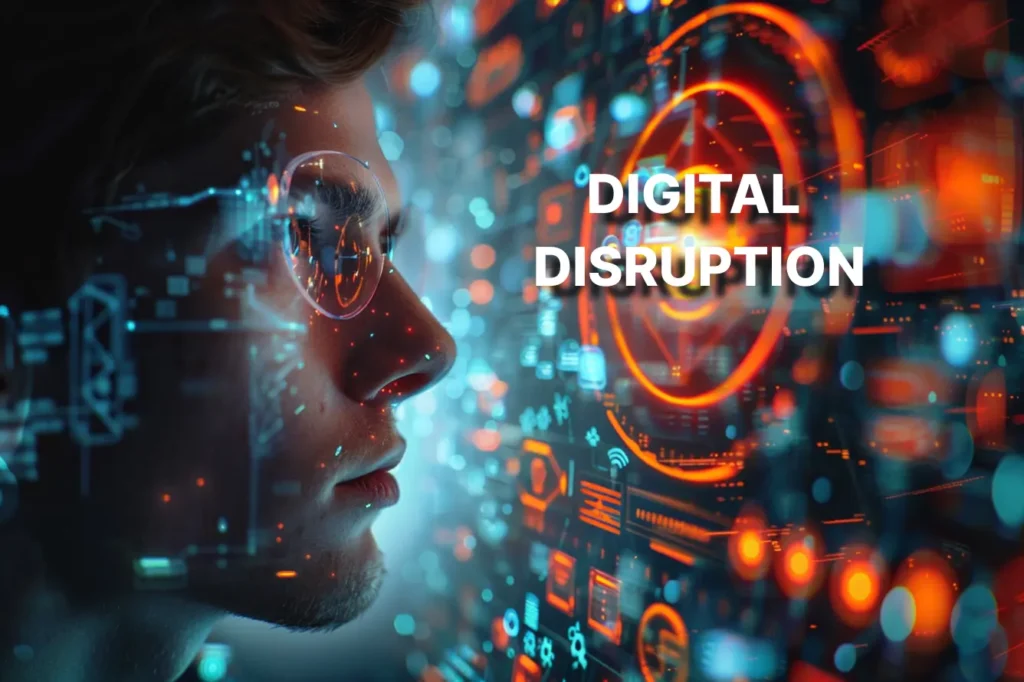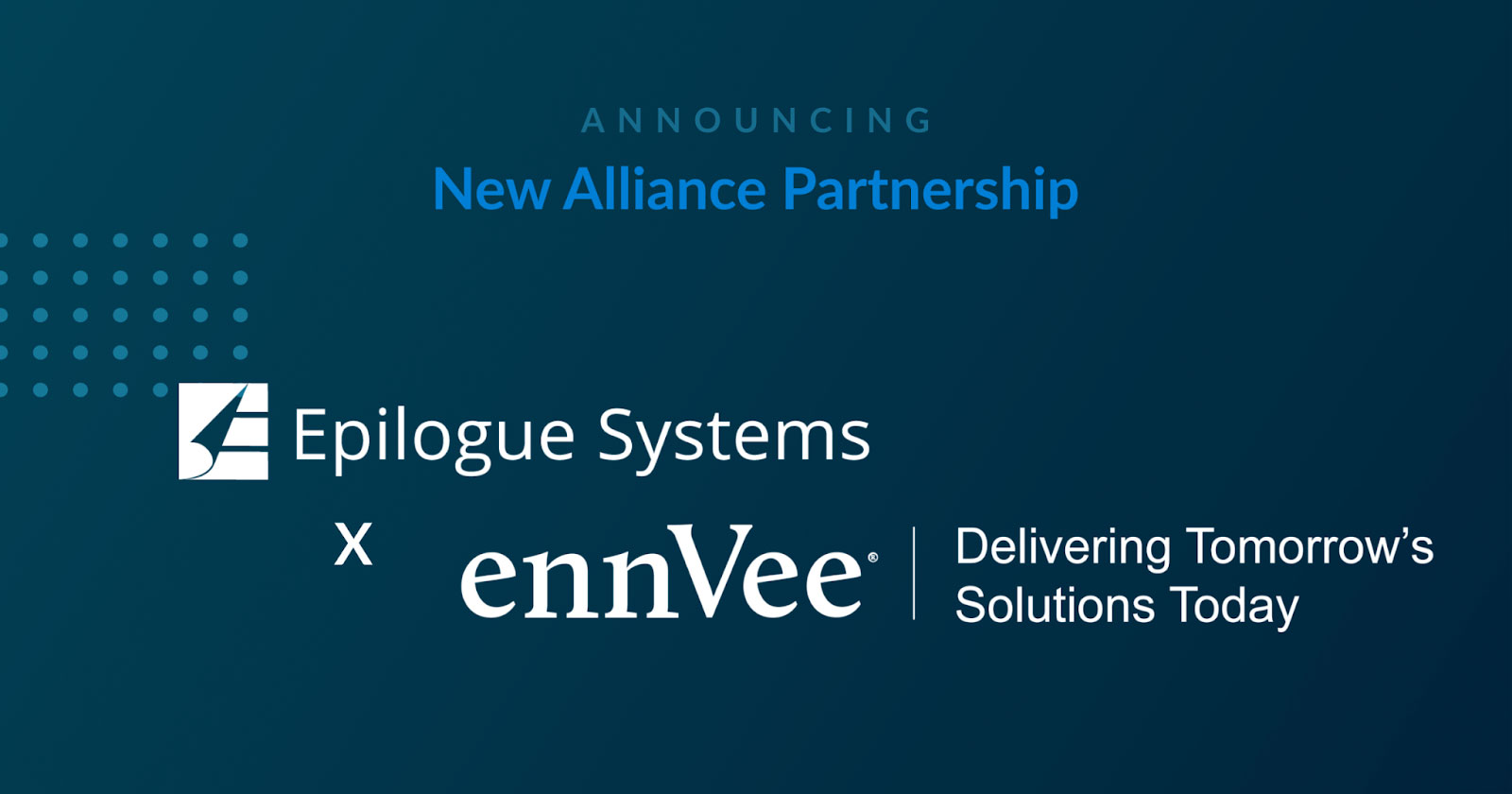As technology advances, rapid change is inevitable, and it’s more important now than ever to recognize the significance of digital disruption. Digital disruption affects virtually every industry and has a significant influence on how businesses approach their operations.
Despite its challenges, organizations that embrace these changes can reap inherent benefits such as increased agility and superior customer experience; however, understanding how digital disruption works is the first step to ensuring your business meets today’s opportunities head-on.
What factors cause digital disruption? This blog post will also explore what exactly digital disruption means and provide practical strategies you can use to help your organization prepare for—and ultimately benefit from—.
What is Digital Disruption in Business?
Digital disruption is represented via digital capabilities, channels, or assets that are also the main causes of digital disruption. It is an effect that modifies the basic expectations and behaviors in a culture, market, business, or process.
Digital disruption, to put it simply, is a change brought on by new business models and evolving technology.
The value of already available goods and services, as well as whole markets or sectors, might be significantly impacted (usually decreased) by these modifications.
Because the markets themselves, whole business models, and the companies that operate inside them must all be re-evaluated and revalued, this is why it is referred to as a “disruption.”

Some digital disruption examples:
- The subscription economy business model, which is employed by organizations like Amazon, Hulu, and Netflix, has generated a disruption in the media and entertainment sectors by altering how consumers access content and how advertising monetizes it.
- Freemium goods that provide customers the ability to sample a basic product with the option to pay for the complete offer, like Spotify, LinkedIn, or Dropbox, place more of a focus on creating a well-known brand behind a good or service.
- The film photography and photo processing industries were both impacted by the digital camera sector.
- Uber and other on-demand services have displaced traditional business models like taxis.
- The growth of electronic reading has changed the publishing and print sectors.
=> You might be interested in: Differences Between Digital Disruption and Digital Transformation
Elements of Digital Disruption
Digital disruption includes four components, counting technology:
- Technology is the creation, development, and use of a product.
- Business refers to the product’s pricing, marketing, and sales strategies.
- Industry consists of norms, rules, and methods for addressing needs.
- Society comprises mindsets, attitudes, and customs that influence how individuals use new things.
How does Digital Disruption Impact Companies?

Attempting to resist digital disruption is pointless since it is an unstoppable force.
But organizations may prepare for it by embracing digital transformation. Stay ahead of the game and work with the flow rather than against it by keeping an eye on the ball and being aware of the digital disruption indicators in your business field.
This not only keeps your success from being swept away by the digital disruption storm but can also fuel the company’s future growth and present it with new prospects.
How to Prepare for and Survive a Digital Disruption?
Don’t make changes when it’s not necessary
Most of the time, change is a positive thing. Businesses must recognize when change is necessary, particularly regarding technology. A company may benefit greatly from new technology, but executives must also be aware of the risks and legal, security, and regulatory issues that come with the shift.
Instead, businesses should exercise due diligence and concentrate on how adopting new technologies would benefit both the company and its clients.
Accept and embrace modern technology
The bitter truth is that an organization can only successfully handle and withstand “digital” disruption when it has reached a particular degree of technical maturity. It benefits to always be in a state of digital transformation, or at the very least, digital flux.
Adopting new technology helps a firm stay adaptable, shift directions more quickly, expand its reach, and enhance its primary offering.
Global business executives generally concurred that maintaining investment in technology was necessary for creating bottom-line benefits.
Using data to drive strategy and operations
Today, information is the foundation of all businesses. A company’s most valuable asset is its data. Every business needs digital solutions that let it gather, manage, use, and exchange data in a safe, dependable, and effective manner without adding to complexity!
A company’s response to market disruptions will be quicker, more precise, and more agile the better its data analysis and integration capabilities are.

Be customer-centric
Customers are the bane of any business’s existence. It is crucial to remember this reality. The firm must welcome a disruption fully if it benefits the consumers.
Service providers, manufacturers, and merchants may always improve their connections with their target consumers thanks to technological advances and disruptions. They provide organizations with countless opportunities to learn more about customer behavior and solve their problems.
Create a department for disruption
Both procedures and individuals are, by definition, resistant to change. Therefore, disruption is a big ask for a well-established company.
The larger the company, the more difficult it is to make radical innovation a way of life or culture. The only approach is to separate radical innovation from the organizational structure, core teams, core business, and core processes.
Radical innovation needs dependable, flexible, and gifted personnel with expertise in marketing, finance, human resources, and just about everything else, but with a digital angle.
Building such a team is challenging, but bringing the proper individuals together may foster ideas into priceless, cutting-edge, and disruptive new realities.
In Conclusion,
Disruption is the new normal and digital disruption is something that businesses must learn to navigate if they want to stay relevant and successful. The key is to embrace change, be comfortable with uncertainty, and continuously adapt.
If you need help preparing for or surviving digital disruptions, contact us. Epilogue Systems can help you chart a journey forward so your business isn’t left behind.





